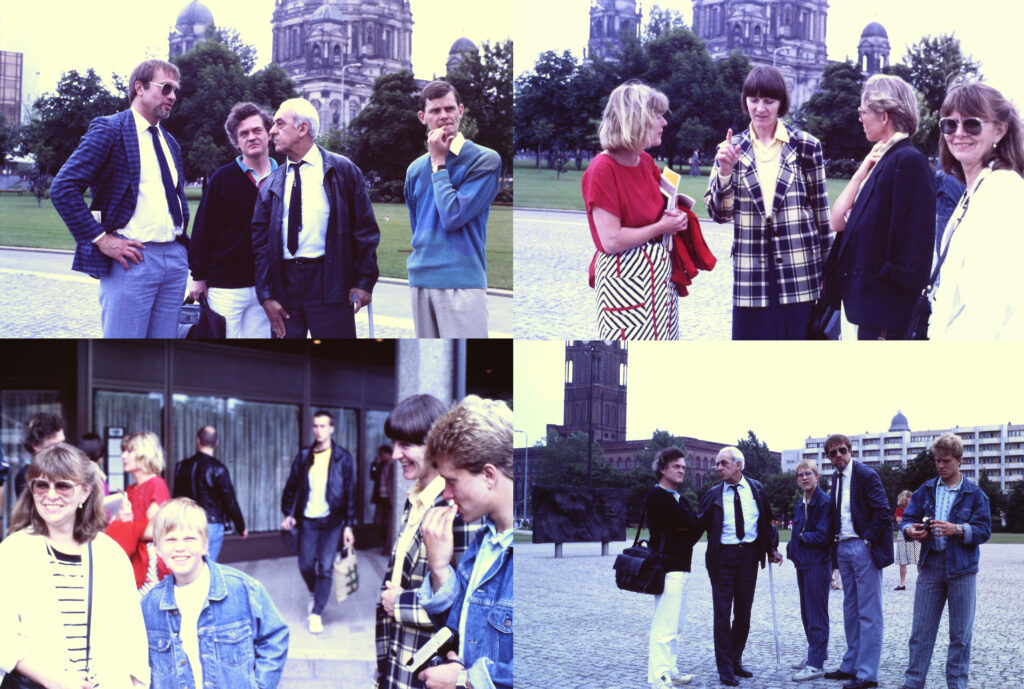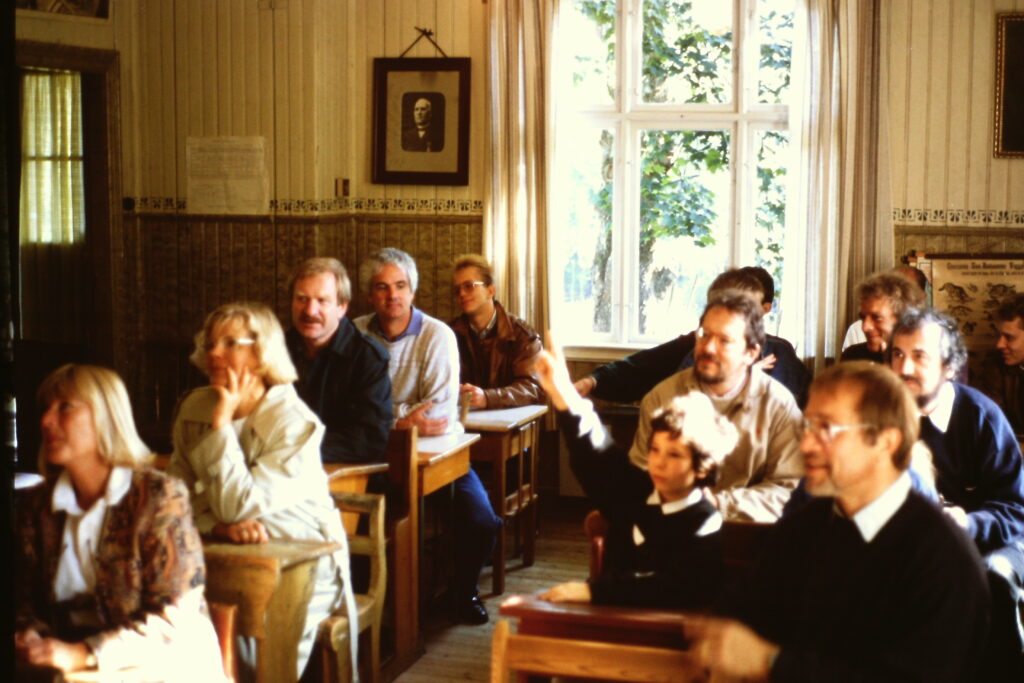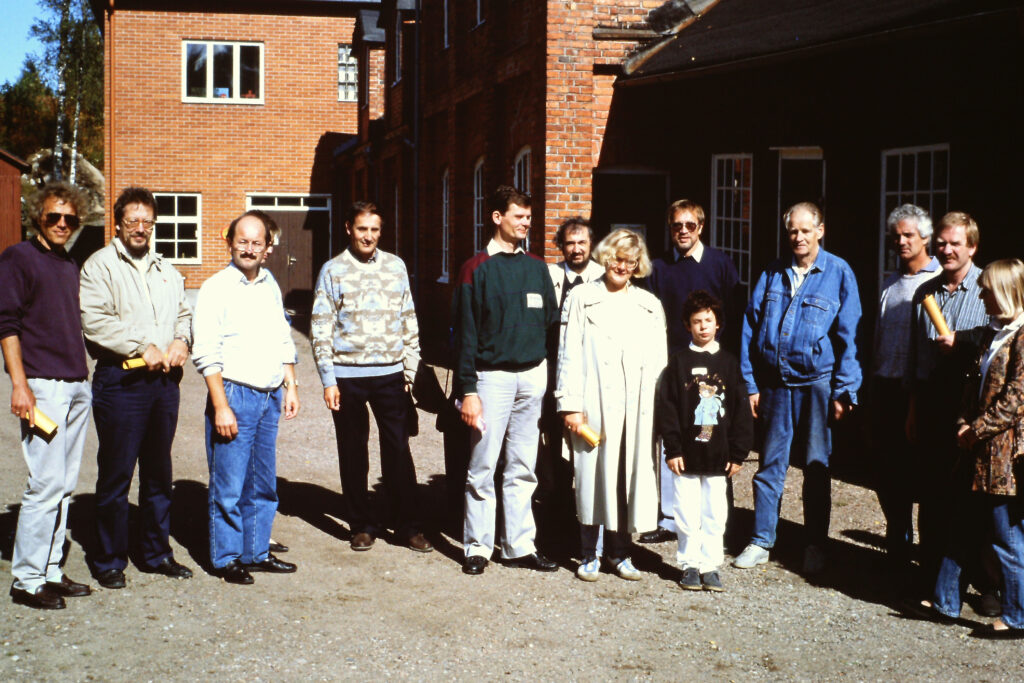Research Project at the University of Gothenburg 1988-1990 sponsored by Riksbankens Jubileumsfond, RJ, Stockholm
Director: Bo Stråth
Researchers : Carl Holmberg, Jörgen Kyle, Britt Liljewall, Thomas Magnusson
A point of departure for the CONDIS project was the bias in modernisation theories dominant among comparative social scientists in the 1970s and 80s that states, rather than nations, were thought to be caught up in a universal and evolutionist logic of industrialisation and democratisation. Economic structures were the prime mover. The argument in the project application for sponsoring was that such theories pay insufficient attention to the political structures and cultural/ideological processes through which highly varied versions of modernity emerge or fail. The project aimed to develop this critical point. Ultimately, the project questioned perspectives of path dependency and intrinsic driving forces in historical processes. An approach was developed focusing on the role of language and conceptualisation of social, political, and economic phenomena. The theoretical assumption of this approach was that nothing is given or predetermined before it has been conceptualised.
The meta-normative framework was the emergence — at the end, the research team would call it construction — of the Scandinavian welfare states and their value underpinning. in comparison. Germany was used as an external reference point to understand Scandinavia in its variety. In empirical terms, the project focused on comparing the democratisation processes in Germany and Scandinavia. The overall umbrella was the modernisation concept.
The first application went to HSFR, the Swedish Research Council for Humanities and Social Sciences, established by the government in 1977 to sponsor basic research, including team research. The answer to the application was no. History as a branch of humanities should be clearly distinguished from social sciences. The idea behind the application was exactly to develop a closer connection to theories in social sciences. This was also how Riksbankens Jubileumsfond saw it, the target of the second application. The government established RJ in 1962 to celebrate the tercentenary anniversary of the Bank of Sweden in 1968. After the CONDIS project, the RJ sponsored several major research projects directed by Stråth
As the project developed, modernisation became increasingly seen as a process full of contradictions, tensions and backlashes, far more than a smooth and predetermined evolution. The theoretical point of departure moved from structural social history (Gesellschaftsgeschichte) towards conceptual history developed by Koselleck. and cultural everyday history (Alltagsgeschichte). However, the project didn’t see these approaches as necessarily opposite and exclusive but as supplementary. However, overall, the methodological focus moved towards conceptualizing politics and social life. The project explored how modernisation processes in Western industrialising societies encompass several subprocesses, such as industrialisation, bureaucratisation, professionalisation, and democratisation. These subprocesses have interacted in complex patterns and produced tensions. Continuities exist with discontinuities, which causes tensions. The subprocesses take the form of different rhythms and paces, one of the sources of tension. Interpretive frameworks and conceptual topography often lag behind technological change, with obvious difficulties for the political discourse. Periods of extreme tensions are experienced as ‘crises’, which have provoked claims for new definitions of problems and solutions and promoted conceptual and interpretive transformation.
The focus on Scandinavian modernization and democratization in a German comparison led to frequent meetings with West German historians, political scientists, and ethnologists. The GDR historian Helga Schulz was also there. They were all contacts that Stråth had established during his AvH fellowship in Kiel (Rainer Paetau, Jürgen Brockstedt, Hartmut Kaelble) and his participation in Jürgen Kocka’s Bürgertum project in Bielefeld (see The Journey). Also, researchers from the other Nordic countries belonged to the network.
In this context, the CONDIS team visited East Berlin and the ethnologist couple Wolfgang and Sigrid Jacobeit a year before the fall of the wall. Since it was not an official invitation, which had been complicated and was not what the team wanted, it became an informal small group meeting along Unter den Linden and around Alexander Platz in Schinkel’s footsteps, in small and continuously shifting groups, moving on two by two to avoid the impression of a gathering. There were things to discuss and curious questions about living in Scandinavia and East Germany. However, Jacobeit was not even outdoors sure that the talk was not intercepted. Whispering, he complained that the GDR had been investing all available building materials into boastfully restoring the Nicolaliviertel ahead of the celebration of Berlin’s 775th anniversary a year previously in October 1987. The celebration was a matter of prestige in the competition between East and West.

The CONDIS team also travelled with the German network to the Gnosjö area in Småland, with its protestant ethics and small-business spirit culture. The Gnosjö region is Sweden’s Swabia; in a British comparison, one might say Scotland. The public debate in the search for orientation in the turbulent 1970s and 80s described the people there as thrifty, pietist, and entrepreneurial, confirmed by a protestant ethic (Weber) guided by what was called the Gnosjö spirit. The region was interesting because of the team’s growing focus on the social middle classes and the political middle field in the Scandinavian-German comparison. In particular, the interest was in the role of the self-employed farmers in the modernization of Scandinavia. The team’s historical map of the Nordic countries showed class struggles but no revolutions. The class conflict was not only between labour and capital. Beyond the labour-capital struggle, the Scandinavian conflict pattern was between small and big farmers, small and big businesses, and the petty-bourgeois and haute bourgeoisie. The labour movement was part of a larger petty people coalition embracing the revival and the temperance movements, folkrörelserna, the people’s movements. The political implication was a growing capacity to compromise through rationalising the social interest conflict.





The results of the CONDIS project have been presented in the two conference reports: Democratisation in Scandinavia in Comparison and Language and the Construction of Class Identities, in addition to several articles on the theoretical implications of the concept of modernisation. Other outputs from the project were:
Carl Holmberg, Historien-jorden-framtiden . Socialistiska visioner i sekelskiftets agrardebatt . MA Gothenburg University 1993;
Carl Holmberg, Längtan till landet. Ph D Diss Gothenburg University 1998;
Jörgen Kyle, Peasant politics and the social question in Sweden 1840-1920 : traditions and conceptualisation, Gothenburg 1990,
and Britt Liljewall, Bondevardag och samhällsförändring : studier i och kring västsvenska bondedagböcker från 1800-talet. PhD Diss Gothenburg University 1995.





































